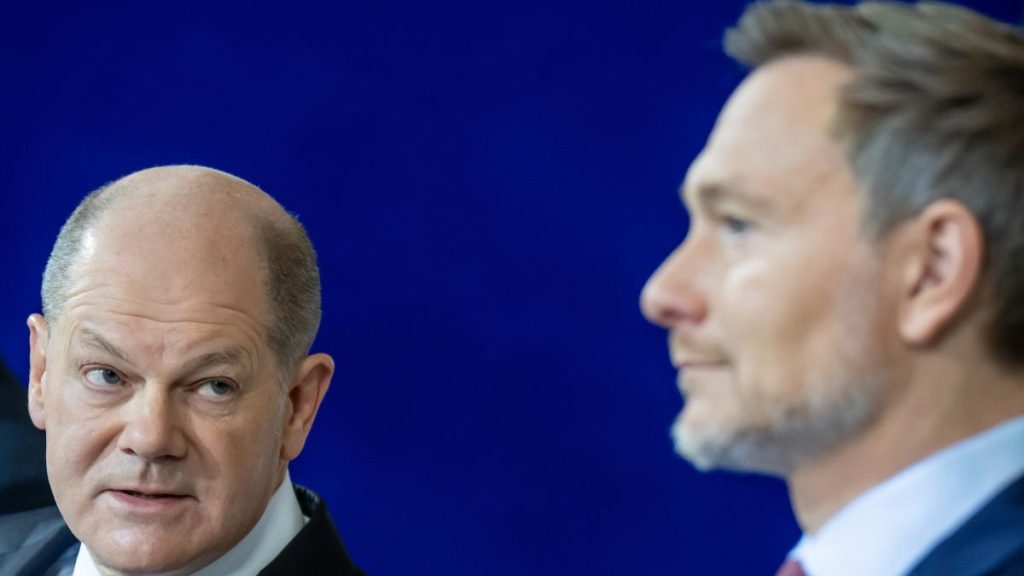In the midst of a budget dispute, German Chancellor Olaf Scholz reaffirmed his commitment to the debt brake, standing alongside FDP Finance Minister Christian Lindner. Scholz also called for an increase in the minimum wage to 15 euros and criticized the Minimum Wage Commission. The Chancellor emphasized the need to align wishes and reality within the budget framework set by tax revenues and the constitution, rejecting exceptions to the debt brake. The coalition has been embroiled in a disagreement over the 2025 federal budget, with several ministries resisting Lindner’s austerity measures.
Despite the ongoing budget dispute, Scholz expressed confidence that the coalition would survive the summer and reiterated his desire to continue serving as Chancellor even after the next federal election, despite poor polls for the Ampel coalition. He also voiced support for gradually raising the minimum wage to 15 euros, starting at 14 euros. Currently, the minimum wage stands at 12.41 euros. Scholz’s determination to stay in office and push for higher wages comes amidst a challenging political climate and opposition from some members of the Minimum Wage Commission, whom he accused of breaking with the tradition of consensus in raising the minimum wage.
Scholz’s comments on the Minimum Wage Commission followed their decision to increase the minimum wage to 12.82 euros by January 2025, a move that saw the employers’ side prevailing over the workers’. This decision was seen as a breach of the social partnership tradition, according to Scholz, who condemned the employers’ insistence on a minimal adjustment. A Forsa survey from May showed that 57% of Germans support raising the minimum wage to 15 euros per hour, highlighting the public demand for higher wages and the need for fair wage negotiations.
The Chancellor’s alignment with Lindner on the debt brake issue and his push for a higher minimum wage signal his commitment to fiscal responsibility and social justice. By emphasizing the importance of meeting budgetary constraints while also advocating for fair wages, Scholz aims to strike a balance between economic stability and social welfare. As the coalition grapples with budgetary challenges, Scholz’s leadership will be crucial in navigating these complex issues and steering Germany towards a sustainable and equitable economic future.
As the budget dispute continues, Scholz’s unwavering stance on key economic policies is likely to shape the future direction of the coalition government and influence the outcome of the upcoming federal election. His determination to stay in office and pursue his vision of a fairer and more prosperous Germany reflects his commitment to serving the interests of the people and ensuring a stable and inclusive society. With the support of Lindner and other coalition partners, Scholz’s leadership will be tested as they work towards finding a consensus on the budget and addressing the challenges facing the country.


